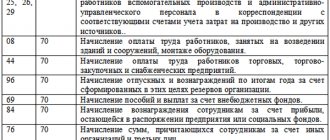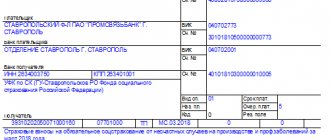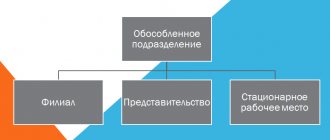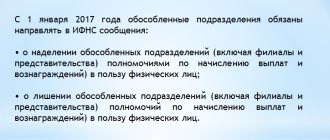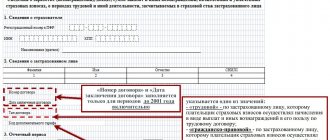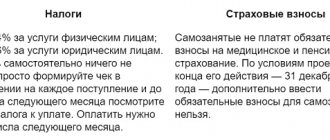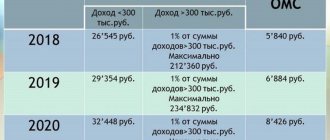For what reason may the FSS of Russia refuse compensation?
Employees of the Federal Social Insurance Fund of Russia have the right to refuse to reimburse an organization for the costs of benefits. This is possible if the benefit is paid:
- in violation of the legislation on compulsory social insurance in case of temporary disability and in connection with maternity. For example, the organization violated the procedure for accruing (calculating) benefits;
- without supporting documents. For example, without a sick leave certificate, a child’s birth certificate, etc.;
- on the basis of documents that were incorrectly executed or issued in violation of the established procedure. For example, the medical organization that issued the sick leave does not have a license (clause 2 of the Procedure approved by order of the Ministry of Health and Social Development of Russia dated June 29, 2011 No. 624n).
This follows from paragraph 4 of part 1 of article 4.2, part 4 of article 4.6 and part 4 of article 4.7 of the Law of December 29, 2006 No. 255-FZ.
In addition, the Federal Social Insurance Fund of Russia will refuse to allocate funds for the payment of benefits if the money in the organization’s bank accounts is not enough to satisfy all the requirements presented to them (Part 3.1, Article 4.6 of the Law of December 29, 2006 No. 255-FZ).
That is, if, after studying the documents submitted by the organization, the territorial branch finds out that the balance in the account is not enough to pay off all the claims made against it in order of priority, it will not transfer the money for the payment of benefits.
Situation: can the Federal Social Insurance Fund of Russia refuse to reimburse maternity benefits on the grounds that the employee does not have the necessary qualifications to work in her specialty?
Yes, it can, if the FSS of Russia manages to prove the fictitiousness of the labor relationship.
As a general rule, the Russian Federal Social Insurance Fund may refuse to reimburse benefits if they were accrued in violation of the law. During the audit, fund employees have the right to check any documents related to the accrual of payments to the fund, as well as confirming expenses incurred by organizations for the purposes of compulsory social insurance (including expenses for the payment of maternity benefits).
This procedure follows from Part 7 of Article 34, Part 22 of Article 35 and Article 37 of the Law of July 24, 2009 No. 212-FZ, Part 4 of Article 4.6 and Part 4 of Article 4.7 of the Law of December 29, 2006 No. 255-FZ.
The legislation does not contain specific lists of documents to be verified, as well as grounds for refusal to reimburse maternity benefits.
Employees of the Federal Social Insurance Fund of Russia may refuse to reimburse an organization for benefits if there are circumstances that indicate the deliberate creation of an artificial situation for the purpose of unlawfully receiving funds from the fund (inflating the amount of benefits). The practice of inspections shows that one of these grounds may be the employee’s lack of necessary qualifications to work in her position (that is, the woman was hired not to actually perform her job functions, but only to receive maternity benefits).
Arbitration courts confirm the legality of the actions of the FSS of Russia in such situations if, in addition to the insufficient qualifications of the employee, there are other facts that together indicate the fictitious nature of the labor relationship and employment only for the purpose of receiving benefits. Such facts may be family relationships with the head of the employing organization, an unreasonably inflated salary, hiring shortly before maternity leave, etc. (see, for example, the ruling of the Supreme Court of the Russian Federation dated October 26, 2015 No. 304-KG15 -13356, resolution of the Arbitration Court of the West Siberian District dated July 3, 2020 No. F04-21153/2015, East Siberian District dated September 18, 2014 No. A19-16413/2013, FAS Ural District dated June 16, 2011 No. F09-3014/11-S2).
At the same time, the inspectors’ conclusion that the employee does not have sufficient qualifications to work in her position cannot in itself be grounds for refusing compensation for benefits. To win a case in court, employees of the FSS of Russia must provide irrefutable evidence that the level of education and work experience of this specialist really does not allow him to perform the assigned work. And if the inspectors’ arguments do not convince the judges, the organization will be able to defend its right to reimbursement of benefits. But for this it is necessary to submit to the court documents confirming:
- the existence of actual labor relations between the employee and the employing organization (including an employment contract, time sheets, pay slips);
- actual performance of the employee’s job duties;
- the need and justification for hiring this specialist;
- the fact of the occurrence of an insured event and the payment of maternity benefits (including a correctly executed sick leave certificate).
There are examples from arbitration practice that confirm the right of organizations to reimbursement of benefits from the FSS of Russia in similar situations (see, for example, the ruling of the Supreme Arbitration Court of the Russian Federation dated November 1, 2013 No. VAS-11916/13, the resolution of the FAS of the East Siberian District dated July 11 2013 No. A33-19621/2011, West Siberian District dated September 26, 2011 No. A27-17239/2010, Ural District dated September 14, 2011 No. F09-5130/11).
Grounds for refusal: formal and not very formal
In this section (as promised earlier) we will talk about law enforcement practice in disputes between policyholders and insurers regarding refusal to reimburse expenses. The first thing I would like to draw the readers’ attention to is Resolution of the Presidium of the Supreme Arbitration Court of the Russian Federation dated December 11, 2012 N 10605/12.
We believe that the conclusions drawn in this decision will be very useful to the policyholder. It was previously said that the territorial body of the FSS, by virtue of Art. 4.2 of Federal Law N 255-FZ and clause 18 of the Regulations on the Social Insurance Fund there is a legal right to refuse reimbursement of expenses for the payment of temporary disability benefits in a situation where these benefits are paid on the basis of incorrectly executed or issued ballots.
It is obvious that the above formulation allows for a very broad interpretation. And, as arbitration practice shows, not every violation of the procedure for issuing sick leave results in a refusal to reimburse expenses for the payment of benefits.
In the dispute considered in the Resolution of the Presidium of the Supreme Arbitration Court of the Russian Federation No. 10605/12, the basis for refusal to reimburse expenses was the identified fact of violation of the licensing procedure by a medical institution. As follows from the case materials, the certificate of temporary incapacity for work was issued by a department of the central district hospital, which was not specified in the license of this medical institution.
The panel of judges of the Supreme Arbitration Court of the Russian Federation, having sent this case for review by way of supervision, indicated the following.
The absence of a license from a medical institution, if its activities comply with licensing requirements and the provision of medical services is provided for by its charter, is formal and cannot be a basis for the fund’s refusal to offset expenses incurred by the insured for the purposes of compulsory social insurance (This position is contained in the FAS Resolution UO dated 01.11.2010 N F09-8411/10-S2).
The mere fact of issuing certificates of incapacity for work by a structural unit of a medical institution that is not named in its license, if there are other conditions for citizens to receive benefits for temporary disability, is not a basis for refusing to accept these expenses for offset (This opinion is set out in the Resolution of the FAS FEB dated 12/12/2006, 12/05/2006 N F03-A04/06-1/4318).
Also, the judges of the Supreme Arbitration Court of the Russian Federation emphasized that in accordance with paragraph 6 of Part 1 of Art. 4.2 of Federal Law N 255-FZ, since 01/01/2010, FSS bodies have the right to bring claims against medical organizations for reimbursement of insurance costs for unreasonably issued or incorrectly issued certificates of incapacity for work.
Thus, the legislator provided that the negative consequences of non-compliance by medical institutions with the legislation on licensing of certain types of activities are assigned directly to these institutions, and not to the policyholder, who, unlike the insurer, is not vested with the right to control the correct execution and compliance by medical organizations with the Procedure for issuing certificates disability.
In other words, a medical institution’s violation of the legal requirements regarding the procedure for issuing such a certificate is not an appropriate basis for refusing to reimburse the employer for expenses.
It is noteworthy that the conclusions made earlier by the same FAS Supreme Arbitration Court in Resolution No. A33-5137/2011 dated 02.29.2012 when considering a similar dispute were considered correct by the panel of judges of the Supreme Arbitration Court of the Russian Federation, refusing to transfer the case for review by way of supervision (Definition dated 05.15.2012 N VAS-6091/12).
The Presidium of the Supreme Arbitration Court of the Russian Federation agreed with the indicated arguments of the panel of judges of the Supreme Arbitration Court of the Russian Federation in Resolution No. 10605/12. At the same time, he added that judicial acts of arbitration courts that have entered into legal force in cases with similar factual circumstances, adopted on the basis of a rule of law in an interpretation that diverges from that contained in this Resolution, can be revised on the basis of clause 5, part 3 of Art. 311 Arbitration Procedure Code of the Russian Federation.
Undoubtedly, this decision will have a significant impact on the outcome of judicial practice in the future.
By the way, other shortcomings similar to the one mentioned above can be cited as grounds for refusal to reimburse expenses:
- absence of an entry in the journal for issuing certificates of incapacity for work (Resolution of the FAS ZSO dated 07/05/2012 N A27-2716/2012 (Decision of the Supreme Arbitration Court of the Russian Federation dated 09/04/2012 N VAS-11263/12 refused to transfer this case to the Presidium of the Supreme Arbitration Court of the Russian Federation for review in the manner of supervision) );
- inaccurate indication of the name of the medical institution on temporary disability certificates (Resolution of the Federal Antimonopoly Service of the Far Eastern Military District of April 18, 2012 N F03-904/2012);
- issuance of certificates of incapacity for work not on the day of discharge from the hospital, but on the day of admission, failure to indicate the specialty of the medical worker (Resolution of the Federal Antimonopoly Service of the Moscow Region dated April 10, 2012 N A40-13739/10-145-68).
What to do if you have received a refusal from the FSS of Russia
The territorial branch of the FSS of Russia will inform you in a reasoned decision that your organization has been denied reimbursement of expenses. Fund employees will send such a document to you within three working days from the date the decision was made (Part 5, Article 4.6 of the Law of December 29, 2006 No. 255-FZ). The form of such a decision was approved by order of the Ministry of Health and Social Development of Russia dated December 23, 2009 No. 1014n. If you do not agree with the fund’s decision, you can appeal it to the regional branch of the FSS of Russia or in court (Part 6, Article 4.6 of the Law of December 29, 2006 No. 255-FZ).
If there are no objections on your part, then you can follow one of the following paths:
- ask the employee to voluntarily return the overpayment (to the cash desk or to the organization’s bank account);
- withhold money from the salary with the consent of the employee;
- recover the overpayment through the court.
In addition, the employer may not withhold (collect) from the employee an erroneously paid benefit or what was given to him in excess of what was due (Article 240 of the Labor Code of the Russian Federation). Then, in accounting, include the costs of such payments as other expenses. But in tax accounting, do not take into account amounts erroneously paid to an employee and not returned by him (not collected from him).
It is also possible that, by decision of the head of the organization, the employee is partially, and not fully, recovered. This is what Article 240 of the Labor Code of the Russian Federation allows. Then in accounting, include in other expenses only the part that could not be recovered from the employee. You will withhold the rest from the employee's salary.
Accounting for benefits if the employee has not returned them
The benefit amount cannot be forcibly returned if the failure is a consequence of a violation of laws by the accountant. Collection of funds is a right, not an obligation of the employer. That is, he may not collect benefits, even if there are grounds for this (the grounds are Article 240 of the Labor Code of the Russian Federation).
If the employee has not returned the benefit, the following entries are made:
- DT69 KT70. Reversal of accrued benefit.
- DT91/2 KT70. Attribution of expenses to other expenses.
- DT91/2 KT69. Calculation of insurance premiums for the amount.
- DT70 KT68. Withholding personal income tax from payments. The exception is disability benefits.
- DT91/2 KT69 (special account “Penies, fines”). Penalties for contributions paid late due to a deficiency.
- DT91/2 KT68 (special account “Fees and Fines”). Penalty for personal income tax paid late.
- DT69/68 KT51. Transfer of insurance premiums and personal income tax to the state treasury.
Personal income tax will be withheld from the employee. If an employee quits, the Federal Tax Service must be informed about the impossibility of withholding tax.
Insurance premiums
Situation: is it necessary to charge insurance premiums for erroneously paid disability benefits (for pregnancy and childbirth, etc.) if the Federal Social Insurance Fund of Russia refused to reimburse the costs?
Yes, it is necessary if it was not possible to withhold the erroneously paid amounts from the employee or, by decision of management, they did not collect them.
In general, social insurance benefits are included in the list of payments not subject to insurance contributions (Article 9 of the Law of July 24, 2009 No. 212-FZ, Article 20.2 of the Law of July 24, 1998 No. 125-FZ). However, if during the inspection, specialists from the territorial branch of the FSS of Russia discovered that the benefit was paid with violations, and therefore did not accept it for credit, then the payment is considered accrued within the framework of labor relations. That is, it should be subject to insurance premiums on a general basis, as provided for in Part 1 of Art. 7 of the Law of July 24, 2009 No. 212-FZ and paragraph 1 of Article 20.1 of the Law of July 24, 1998 No. 125-FZ.
But here it also matters whether it was possible to recover the wrongfully paid benefits from the employee. If yes, then there is no need to charge contributions. After all, the money was returned, which means that there was no payment as such in the end. And therefore there is no object of taxation with insurance premiums. It does not matter whether the employee returned the money voluntarily or whether the organization forcibly collected it from him.
Was it not possible to withhold the erroneously paid amounts from the employee or, by decision of management, did they not begin to collect them? Then there is a fact of payment. Accordingly, insurance premiums will have to be calculated.
Such clarifications are in letters of the Ministry of Labor of Russia dated September 3, 2014 No. 17-3/OOG-732, Ministry of Health and Social Development of Russia dated August 30, 2011 No. 3035-19.
Advice: if you are ready to argue with the inspectors, then you do not have to charge insurance premiums on the amounts of benefits not accepted by the Federal Social Insurance Fund of Russia for offset, even if the employee has not returned the money. The following arguments will help you.
When the territorial branches of the FSS of Russia do not accept benefits accrued by the organization, the social orientation of these payments remains the same. Typically, the fund’s refusal to compensate expenses means that the policyholder paid benefits based on incorrectly executed documents. And if the employee was really sick or injured, then the benefit retains its character of material support in case of loss of ability to work. Benefits are not related to wages, are not incentive payments and are not provided for in employment contracts. Therefore, regardless of their reimbursement from the budget of the Social Insurance Fund of Russia, such payments are subject to paragraph 1 of part 1 of Article 9 of the Law of July 24, 2009 No. 212-FZ and subparagraph 1 of paragraph 1 of Article 20.2 of the Law of July 24, 1998 No. 125-FZ. This means that insurance premiums are not assessed. The legality of this approach is confirmed by judges (see, for example, the ruling of the Supreme Court of the Russian Federation dated November 23, 2020 No. 304-KG15-14441, the resolution of the Arbitration Court of the West Siberian District dated July 10, 2020 No. F04-20221/2015, FAS Ural District dated May 8, 2014 No. F09-2608/14).
Regardless of whether the employee returned the benefit or not, the organization will have arrears in insurance premiums. After all, the amount of expenses accepted for deduction when calculating the monthly payment to the Federal Social Insurance Fund of Russia was overestimated. The specialists of the territorial branch of the fund will send a request for compensation for such arrears to the organization along with a decision that the costs of paying insurance coverage are not accepted for offset. The request will indicate the amount and repayment period of the arrears (Parts 4 and 5 of Article 4.7 of the Law of December 29, 2006 No. 255-FZ). The organization is obliged to fulfill it in a timely manner (clause 5, part 2, article 4.1 of the Law of December 29, 2006 No. 255-FZ).
Situation: is it possible to fine an organization for non-payment (not full payment) of insurance premiums if the Federal Social Insurance Fund of Russia refused to reimburse the social benefits paid to the employee?
Yes, it is possible if such arrears arose due to unlawful actions of the organization. In particular, these are:
- incorrect definition of insurance period;
- errors in calculating benefits;
- payment of benefits in the absence of documents confirming the employee’s right to it, etc.
Is the refusal to reimburse benefits due to the employee’s unlawful actions (for example, did he falsify documents)? Then there is no reason to fine the organization.
Such conclusions are in the letter of the Ministry of Health and Social Development of Russia dated August 30, 2011 No. 3035-19.
In addition, you will have to adjust the amount of previously accrued contributions and be sure to submit an updated calculation to the territorial branch of the FSS of Russia (Part 1, Article 17 of Law No. 212-FZ of July 24, 2009).
Example 3. Adjustment due to “duplication” of a certificate from a previous place of work
First of all, you should eliminate the cause of the error: remove one of the Certificates for calculating benefits (incoming) (Salary - Certificates for calculating benefits - Certificate for calculating benefits (incoming)). Then enter the corrections to the sick leave :
Similar to the previous examples, the adjusted benefit amount is included in the calculation of insurance premiums only for the current period (9 months of 2020). To fill out corrective reports, you need to make an adjustment using the Data Transfer (Administration - Data Transfers) according to the accumulation register of Social Security Benefits .
Adjustments should also be made based on the original movements of the correction documents. Make a “movement” of the amount of reversed benefits from the current period (July 2019) to the adjustment period (December 2020 and May 2019) according to the Period .
Then the income should be reclassified as taxable. The reversal of non-taxable income has already passed in the correction document Sick Leave . It is necessary to enter income by type Income fully subject to insurance premiums in the amount of this reversal. It is convenient to do this in the document Recalculation of insurance premiums (Taxes and contributions - Recalculation of insurance premiums - Recalculation of insurance premiums).
To recalculate for different calendar years, you need to create a separate document in which in the header indicate the Calculation Period - the year for which the recalculation is carried out, and the Month of Registration - the month in which the recalculation is made.
Income information must be entered on the Income information :
Then, using the Calculate , we get the contribution amounts, which are calculated automatically:
When recalculating contributions during one billing period (income is adjusted for May 2020 in 2020 Calculation Period FSS contributions (accidentally) is reflected in the current period:
For the 1st half of 2020, an adjusting regulated report 4-FSS will not be required, and adjustments to income and additional accrued contributions will be reflected in 4-FSS in the adjustment period - July 2020. And for 2020, you will also need to generate an adjusting report 4-FSS .
Filling out Section 3 of the corrective Calculation of insurance premiums for 2020 as a result of such an adjustment:
Filling out Section 3 of the corrective Calculation of insurance premiums for the 1st half of 2019 as a result of the adjustment:
Similar articles
- Estimated obligations for vacations in ZUP 3.1
- Reporting on insurance premiums in 1C programs for 9 months of 2017
- [28.02.17] Accounting for insurance premiums in 1C programs in 2017
- [24.10.17] Successful transition to ZUP 3.1
Personal income tax
Whether or not to withhold personal income tax from an erroneously paid benefit depends on the type of benefit and whether the employee returned the money (voluntarily or forcibly, it does not matter). Four options are possible.
Option 1: the employee returned or was charged erroneously paid sick leave benefits
Once an employee has returned an erroneously paid allowance to the organization, there is no income for personal income tax purposes. This means that such payments are not subject to personal income tax. This follows from the provisions of paragraph 1 of Article 209, paragraph 1 of Article 210 of the Tax Code of the Russian Federation.
But when paying sick leave benefits, you withheld personal income tax (clause 1 of Article 217 of the Tax Code of the Russian Federation). Therefore, as a result of the return, there will be an overpayment of tax in the amount previously withheld (clause 1 of Article 217, clause 1 of Article 209 of the Tax Code of the Russian Federation).
For information on how to return (offset) the overpayment that has arisen, see How to return an overpayment for personal income tax.
Option 2: the employee returned or was charged the benefit, which is fully financed by the Federal Social Insurance Fund of Russia
Benefits that are fully reimbursed by the fund (maternity benefits, child care benefits, etc.) are exempt from personal income tax (clause 1 of Article 217 of the Tax Code of the Russian Federation). Since personal income tax was not withheld when paying them, no tax adjustments will have to be made when returning such amounts.
Option 3: the employee did not return the sick leave benefit, and the organization did not collect from him
In this case everything is simple. When paying benefits, you have already withheld personal income tax. So the employee no longer has income in the sense of Article 41 of the Tax Code of the Russian Federation. Of course, there is no need to calculate additional taxes.
Option 4: the employee did not return the benefit, which was fully paid at the expense of the Russian Social Insurance Fund, and the organization did not collect the money
The fund refused to accept benefits that are not subject to personal income tax, for example, for pregnancy and childbirth, and the employee did not return it? This amount will already have to be included in the personal income tax base. After all, such a payment will no longer be considered a benefit. So the organization must fulfill the duties of a tax agent: calculate the tax, withhold it and transfer it to the budget.
Accounting for the transfer of funds from the Social Insurance Fund
The adjustment will be automatically filled in only if you reverse the bill right in March, and I suggest doing so. In March, cancel the sick leave - you will get amounts with a minus, and in March, make a one-time accrual of “Benefit not accepted by the Social Insurance Fund for offset” for the same amount with a plus. Thus, reclassifying sick leave as income subject to insurance contributions. Good day! The created one-time accrual (benefits not accepted as expenses at the expense of the Social Insurance Fund) will be subject to insurance premiums in full. What is the best way to set up accounting (how salaries are reflected)? Credit it to the account. 91.02?
Arbitration Procedural Code of the Russian Federation, the burden of proving the fact of violation of their rights and legitimate interests rests with the applicant.
The defendant's representative did not recognize the stated demands and gave explanations similar to those set out in the response.
Answer dated 10/20/2017 If reimbursement of expenses for the previous year was received from the Federal Social Insurance Fund of the Russian Federation to the personal account of the recipient of budget funds, it is initially reflected as a restoration of cash expenses: Debit KRB 1,304 05,213 Credit KRB 1,303 02,730 – reimbursement of expenses received from the Federal Social Insurance Fund of the Russian Federation sick leave (clause 104 of the instructions, approved by order of the Ministry of Finance of Russia dated December 6, 2010 No. 162n, hereinafter referred to as Instruction No. 162n).
The benefit cannot be recovered from the employee if the failure to offset social benefits arose due to an accountant’s incorrect interpretation of the law when calculating the amount of the benefit (Part 4, Article 15 of Law 255-FZ). In addition, the manager has the right to decide not to collect benefits regardless of the reason for the failure (Article 240 of the Labor Code of the Russian Federation).
Accounts receivable that arose in 2014 are at the full disposal of budgetary institutions, that is, the specified amounts are credited to their personal accounts.5.
The Social Insurance Fund may not accept benefits for credit. An entrepreneur cannot ignore this decision of the authorities. He must correctly take into account expenses not taken into account and make corrective entries.
The employee's salary is 30,000 rubles. How to reflect in the organization’s accounting operations related to correcting an error and adjusting the amount of the advance payment under the Unified Social Tax?
Question: According to the inspection report, the Social Insurance Fund did not accept expenses for accrued disability benefits. A reversal entry was made in budget accounting: Debit 1,302 02,830 Credit 1,302 13,730. Next, we must accept these expenses at the expense of the institution. Which KOSGU should these expenses be reflected in?
Challenging is possible only if the decision not to accept benefits was made on the basis of subjective reasons. That is, the service did not justify its decision. The claim must be submitted to the FSS itself. The application must state all the circumstances of the case and attach supporting documents.
According to Part 5 of Art. 25 of Law N 212-FZ, penalties are calculated as a percentage of the unpaid amount of insurance premiums for each calendar day of delay in payment of insurance premiums. Please note that the day of repayment of overdue debt on insurance premiums is not included in the period of delay (Clause 1, Part 5, Article 18 of Law No. 212-FZ).
If an employee returns a payment on which income tax has already been paid, an overpayment is created. The employee must be told about the overpayment on the basis of paragraph 1 of Article 231 of the Tax Code. The overpayment is counted toward future personal income tax payments.
Federal Law of July 24, 2009 N 212-FZ “On insurance contributions to the Pension Fund of the Russian Federation, the Social Insurance Fund of the Russian Federation, the Federal Compulsory Medical Insurance Fund.”
Therefore, even if the FSS has not accepted the amount of benefits paid to employees as offset, there is no need to charge insurance premiums on these amounts (see “There is no need to charge insurance premiums for benefits that the FSS has not offset, the Supreme Court believes”).
CJSC Amur Chickens does not have the right to apply reduced insurance premium rates. The main activity of Amur Chickens CJSC belongs to the VII class of professional risk. It corresponds to the rate of insurance premiums in case of injury - 0.8%.
Is it possible when paying insurance premiums to the Social Insurance Fund for the current month of September in the amount of, for example, 17,000 rubles? take into account the amount of excess expenses in the Social Insurance Fund of the Russian Federation (the amount of excess is 190,000 rubles) for the previous month - August?
If the fund has not taken into account benefits paid in the current year, additional assessment of insurance premiums is made in the reporting period when the error was identified (clause 5 of PBU 22/2010).
If a counting (that is, arithmetic) error was made or the employee himself acted in bad faith. For example, he presented you with a fake ballot. In other cases, it will be possible to return the amount of benefits not accepted by the fund only if the employee agrees to this voluntarily.
As a result of the audit, the Fund came to the conclusion that the employee O.S. Marlamova was fictitiously employed. before the occurrence of an insured event (maternity leave) in order to receive compensation payments from the Social Insurance Fund budget, which is reflected in the desk audit report No. 2954 dated 04/06/2016, sent to the policyholder on 04/08/2016.
Since 01/01/2017, the powers to administer insurance contributions for compulsory social insurance in case of temporary disability and in connection with maternity have been transferred to the tax authorities.
For profit tax purposes, expenses in the form of penalties for late taxes are not taken into account (clause 2 of Article 270 of the Tax Code of the Russian Federation).
The FSS may accuse the organization of creating artificial conditions for reimbursement or offset of budget funds.
How to correct an erroneous payment in accounting
If you do not intend to challenge the decision of the territorial branch of the fund in court, then all transactions related to the calculation and payment of such benefits will be erroneous. This means that such errors must be corrected in accounting and financial statements (clause 4 of PBU 22/2010). It does not matter whether the employee returned the overpayment or not. For information on how to make corrections in accounting, see How to correct errors in accounting and financial reporting.
Transfer the amount of hospital benefits (benefits related to the birth of a child), the reimbursement of expenses for which the Federal Social Insurance Fund of Russia refused, to account 73 “Settlements with personnel for other operations” (76 “Settlements with various debtors and creditors”, if the person has already quit):
Debit 73 (76) Credit 70
– the employee’s debt in the amount of the erroneously paid benefit (overpayment) was transferred.
A special situation with funeral benefits. There is no need to make any additional entries for the amount of the erroneously issued benefit (overpayment). The fact is that this benefit is initially taken into account in account 73 or 76. So continue to take into account the amount of the mistakenly paid funeral benefit (overpayment) in account 73 (76) until the money is returned or written off as expenses.
Refusal of the Federal Social Insurance Fund of the Russian Federation to pay maternity benefits
The Social Insurance Fund of the Russian Federation carefully checks each individual situation and decides whether there is a need for it and a legal basis for paying monetary compensation. This problem especially often affects women who are about to go on maternity leave. Many of them, with the help of friends and relatives, are able to use a trick - get a job literally a few weeks before pregnancy, and when going on maternity leave, demand large amounts of money from the Social Insurance Fund of the Russian Federation. There may well be a refusal to pay maternity benefits, but everything depends largely on the court in which the case will take place when the challenge of the government agency’s refusal begins.
Some judges believe that the laws do not limit payments to female employees, even if they have only recently joined the force. Others, including representatives of the FSS, insist that this is ordinary fraud and do not want to pay money. If they manage to somehow prove this, then it is unlikely that they will be able to challenge the FSS’s refusal to pay maternity benefits.
The decision of the FSS can be appealed in an arbitration court, watch the video with advice from a lawyer on arbitration cases, write your question in the comments of the video
The organization withholds money from the employee: accounting
The amount of benefits overpaid can be withheld from the employee’s salary or subsequent benefit amounts in the following cases:
- the overpayment occurred as a result of a counting error. This is understood as an error made during arithmetic calculations (letter of Rostrud dated October 1, 2012 No. 1286-6-1, ruling of the Supreme Court of the Russian Federation dated January 20, 2012 No. 59-B11-17);
- dishonest actions of an employee (for example, he submitted documents with incorrect information or forged ones).
But first, get the written consent of the employee (letter from the Federal Social Insurance Fund of Russia dated August 20, 2007 No. 02-13/07-7922). At the same time, no more than 20 percent of the amount due to him can be withheld from the employee’s monthly salary (benefits). This is stated in Article 138 of the Labor Code of the Russian Federation, Part 4 of Article 15 of the Law of December 29, 2005 No. 255-FZ and Article 19 of the Law of May 19, 1995 No. 81-FZ.
When you make your next salary (benefits) payment, make an entry in your accounting records:
Debit 70 Credit 73 (76)
– the amount of erroneously paid benefits (overpayment) is withheld from the employee’s salary;
Debit 70 Credit 50 (51)
– the salary was issued from the cash register (the salary was transferred to the employee’s bank card) minus the withheld amount of the erroneously paid benefit (overpayment).
For more information about the cases and procedure for deductions from an employee’s salary, see How to make deductions from salaries at the initiative of the organization.
Situation: how to formalize an employee’s consent to deduct social benefits from his salary. FSS of Russia refused to reimburse benefits?
Ask the employee to write a statement.
Withholding from an employee’s salary can only be done with his written consent and only in cases provided for by law (letter of the Federal Social Insurance Fund of Russia dated August 20, 2007 No. 02-13/07-7922).
Labor legislation does not answer the question in what form the employee’s consent should be obtained to deduct overpaid amounts from his salary - verbally or in writing. But in order to avoid misunderstandings in the future (for example, the employee first agreed verbally and then began to make claims), it is better to record the consent in writing - let the person write a statement. This conclusion follows from the provisions of Article 137 of the Labor Code of the Russian Federation.
Accounting for benefits when they are returned by an employee
Payment accounting is determined by whether the employee has returned the benefits. Expense records need to be reversed. The date of the new entry is the same as the date of the fund's decision that payments will not be accepted for offset. Withholding of benefits can only be carried out under these circumstances:
- The employee received money based on knowingly false information. For example, he provided a fake certificate of incapacity for work.
- The accountant made an accounting error.
If the specified conditions are absent, the withholding can only be carried out voluntarily.
Part 4 of Article 137 of the Labor Code of the Russian Federation, part 4 of Article 15 of Federal Law No. 255, part 1 of Article 138 of the Labor Code of the Russian Federation states that such expenses can be deducted from an employee’s income in the amount of no more than 20% of monthly earnings.
If the employee returned the funds, the following entries are made in accounting:
- DT69 KT70. Reversal of benefit accrual.
- DT20, 23, 25 26 44 KT70. Reversal of sick leave benefits for the first 3 days (payments for the remaining days are made by the employer).
- DT70 KT68. Reversal of personal income tax from payments on a certificate of incapacity for work.
- DT73, 76 KT70. The benefit is classified in the category of settlements with employees for other transactions. If the worker quits, the overpayment is returned to account 76.
- DT50, 51, 70 KT73, 76. The specialist returned the funds (voluntarily or forcibly).
- DT69 KT51. Additional payment of benefits. Its necessity is due to the fact that contributions for temporary disability have been reduced by the amount of payments.
- DT70 KT51. Overpayment of personal income tax. Refund of overpayment to the employee's account.
A reversal is the return of the originally specified value. That is, this is a correction to a previously made entry.
The employee received a writ of execution: accounting
If an employee has received a writ of execution, that is, the organization is recovering the amount of an erroneously paid benefit in court, then the amounts specified in this document must be withheld from earnings. For more information about this, see How to make deductions from wages based on executive documents.
Make a note in your accounting:
Debit 70 Credit 73 (76)
– the amount of erroneously paid benefits (overpayment) under the writ of execution was withheld from the employee’s salary;
Debit 70 Credit 50 (51)
– the salary was issued from the cash register (the salary was transferred to the employee’s bank card) minus the withheld amount of the erroneously paid benefit (overpayment) according to the writ of execution.
The employee returned the money: income tax
Whether the return of an erroneous benefit will affect your income tax calculation depends on what benefit the fund refused to refund. There are two possible options.
Option 1: the fund refused to reimburse the benefit, which is fully financed by the Russian Social Insurance Fund
Benefits for which the FSS of Russia refused to reimburse expenses and which were returned by employees do not affect the calculation of income tax. We are talking about benefits for pregnancy and childbirth, child care, etc. Since the benefit was supposed to be reimbursed by the fund, then you did not take these amounts into account in expenses. This means that the return of money in case of refusal to reimburse the benefit does not affect the organization’s income. There is no economic benefit in the sense of Article 41 of the Tax Code of the Russian Federation. There is no need to adjust the tax base for income tax. There is no arrears for this tax.
Option 2: the fund refused to reimburse sick leave benefits when an employee of the organization suffered an illness or injury
If the fund refuses to reimburse the sick leave benefit, then the taxable income will have to be adjusted by the amount of the benefit for the first three days of the employee’s illness. After all, the organization paid for these days at its own expense.
Since this error resulted in an understatement of the tax base and incomplete payment of income tax to the budget, submit an updated tax return. An amendment must be submitted for the period in which the organization unlawfully took into account part of the sick leave benefit as expenses for the purpose of calculating income tax.
All these conclusions follow from the provisions of paragraph 1 of Article 81, paragraph 1 of Article 54, subparagraph 48.1 of paragraph 1 of Article 264 of the Tax Code of the Russian Federation, paragraph 1 of part 2 of Article 3 of the Law of December 29, 2006 No. 255-FZ.
Since there is arrears in income tax, the organization will have to pay penalties and possibly a fine (Articles 75, 122 of the Tax Code of the Russian Federation).
An example of how to take into account the return of sick leave benefits by an employee when the Federal Social Insurance Fund of Russia refuses to reimburse the amounts paid. General organization
Alpha LLC applies a general taxation system (accrual method); it pays income tax monthly based on actual profit.
Employee of the organization A.I. Ivanov (worker) was ill from June 1 to June 5. The employee's incapacity for work was confirmed by a sick leave certificate. Ivanov’s insurance experience exceeds eight years. He has the right to a benefit in the amount of 100 percent of average earnings calculated for two calendar years preceding the year of the insured event.
Sick leave benefits for the first three days of an employee’s illness are paid by the organization at its own expense. From the fourth day of illness, the amount of the organization’s benefit is reimbursed by the FSS of Russia. Ivanov’s average daily earnings are 500 rubles/day.
Alpha's accountant calculated the benefit as follows.
At the expense of the organization you need to pay: 500 rubles/day. × 3 days = 1500 rub.
At the expense of the Social Insurance Fund of Russia they pay: 500 rubles/day. × 2 days = 1000 rub.
Ivanov received the benefit on July 1. The amount of sick leave benefits increased the personal income tax base. The employee does not have the right to tax deductions. The tax amount was: (1500 rubles + 1000 rubles) × 13% = 325 rubles.
Ivanov was paid: 2500 rubles. – 325 rub. = 2175 rub.
Alpha's accountant transferred personal income tax to the budget on July 1.
The following entries were made in accounting:
Debit 20 Credit 70 – 1500 rub. – a benefit paid at the expense of the organization has been accrued;
Debit 69 subaccount “Settlements with the Social Insurance Fund for social insurance contributions” Credit 70 - 1000 rubles. – benefits paid at the expense of the Federal Social Insurance Fund of Russia have been accrued;
Debit 70 Credit 68 subaccount “Personal Income Tax Payments” – 325 rubles. – personal income tax is withheld from the benefit amount;
Debit 70 Credit 50 – 2175 rub. – a benefit was issued to the employee;
Debit 68 subaccount “Personal Income Tax Payments” Credit 51 – 325 rub. – personal income tax is listed.
The accountant included the amount of benefits paid at the expense of the organization (1,500 rubles) as income tax expenses. By the amount accrued at the expense of the Federal Social Insurance Fund of Russia (1000 rubles), the accountant reduced the amount of insurance contributions that he had to pay to this fund. The accountant transferred insurance premiums from payments to citizens to the budget on July 15.
On July 27, the Federal Social Insurance Fund of Russia made a decision to refuse to reimburse the amount of benefits due to the fictitiousness of the sick leave. The employee confirmed that the sick leave was not issued by the medical organization and agreed to return the benefit amount.
The following entries were made in accounting:
Debit 20 Credit 70 – 1500 rub. – the benefit amount paid at the expense of the organization is reversed;
Debit 69 subaccount “Settlements with the Social Insurance Fund for social insurance contributions” Credit 70 - 1000 rubles. – the amount of benefits paid at the expense of the Russian Social Insurance Fund has been reversed;
Debit 70 Credit 68 subaccount “Personal Income Tax Payments” – 325 rubles. – the amount of withheld personal income tax is reversed;
Debit 73 Credit 70 – 2175 rub. – the employee’s debt in the amount of the erroneously paid benefit (overpayment) was transferred;
Debit 50 Credit 73 – 2175 rub. – the employee returned the amount of the benefit to the organization’s cash desk.
The Alpha accountant transferred the income tax to the budget on July 28 with an increase in the amount of the tax base by 1,500 rubles. The reporting was prepared taking into account the correction of the error.
Alpha's accountant completed an updated Form 4-FSS. The organization had an arrears in terms of contributions to the Social Insurance Fund of Russia, for which the inspectors assessed penalties.
Example 2: Adjustment due to an incorrect date for a benefit event
First of all, we correct the accrual: we correct the document One-time benefit at the expense of the Social Insurance Fund , in which we indicate the correct Date of the event :
Data Transfer document (Administration - Data Transfers), in which we adjust the accumulation register of Social Security Benefits . The adjustment principle is similar to Example 1, but since the changes occur within one calendar year, you only need to change the benefit amount by the amount of the difference:
It is also necessary to adjust the data in Section 3 Calculation of insurance premiums . The corrected benefit amount is fully included in the report for 9 months of 2020:
And the amount of the benefit is not included in the adjustment report for the 1st quarter of 2020:
It is necessary that the report for the 1st quarter of 2020 reflect the amount of the benefit, taking into account the correction.
We add to the document Transfer of data an adjustment to the accumulation register Income accounting for the calculation of insurance premiums :
Using this adjustment, we transfer the amount of income in the form of benefits from July 2020 to February 2020. Please note that to adjust this register, it is important to correctly fill out the Date of receipt of income : we remove the amount from 07/31/2019 (indicate it with a “minus”) and transfer it as of 02/28/2019 (we enter it with a “plus”).
After this, the adjustment report for the 1st quarter of 2020 reflects the amount of the benefit, taking into account the adjustment:
The report for 9 months of 2020 does not reflect the amount of benefits:
The employee returned the money: USN
Whether the return of an erroneous benefit will affect the calculation of tax on the simplified tax system depends on what benefit the fund refused to reimburse. There are two possible options.
Option 1: the fund refused to reimburse the benefit, which is fully financed by the Russian Social Insurance Fund
Benefits for pregnancy and childbirth, child care, etc., for which the FSS of Russia refused to reimburse expenses and which were returned by employees, do not affect the calculation of the single tax. It does not matter which object of taxation the organization has chosen - “income” or “income reduced by expenses”. Since the benefit was supposed to be fully reimbursed by the Federal Social Insurance Fund of Russia, then you did not take these amounts into account in expenses and did not apply a deduction under the object “income” for them. Therefore, the return of money in case of refusal to reimburse the benefit does not affect the company’s income. There is no economic benefit in the sense of Article 41 of the Tax Code of the Russian Federation. There is no arrears for this tax. After all, simplified organizations do not take into account the amount of such benefits when calculating the single tax (clause 2 of Article 346.16, clause 3 of Article 346.21 of the Tax Code of the Russian Federation).
Option 2: the fund refused to reimburse sick leave benefits when an employee of the organization suffered an illness or injury
Regardless of the chosen object of taxation, if the fund refuses to reimburse the hospital benefit, either the tax base for the single tax or the tax itself will have to be adjusted to the amount of the benefit paid at its own expense.
Since, due to an error, the organization did not pay additional single tax, submit an updated tax return. It must be drawn up for the period in which the organization unlawfully reduced the single tax (included in expenses) by the amount of benefits paid at its own expense. That is, for the first three days of the employee’s illness.
This follows from the provisions of paragraph 1 of Article 81, paragraph 1 of Article 54, subparagraph 7 of paragraph 1 of Article 346.16, paragraph 3.1 of Article 346.21 of the Tax Code of the Russian Federation, paragraph 1 of part 2 of Article 3 of the Law of December 29, 2006 No. 255-FZ.
Once arrears have arisen regarding the single tax (advance payments thereon), the organization will have to pay penalties, and possibly a fine (Articles 75, 122 of the Tax Code of the Russian Federation).
An example of how to reflect when taxing an employee’s return of maternity benefits when the Federal Social Insurance Fund of Russia refuses to reimburse the amounts paid. The organization applies a simplification with the object of taxation “income”
Alpha LLC applies a simplified taxation system (taxable object “income”). Contributions to the Pension Fund of Russia, the Social Insurance Fund of Russia and the Federal Compulsory Medical Insurance Fund are calculated by Alpha at the regular rate.
From November 1 A.S. Dezhneva was hired by the organization as a part-time accountant. The employee presented a sick leave certificate to the accounting department, on the basis of which she was granted maternity leave from May 13 (for 140 calendar days). The amount of maternity benefit was 110,000 rubles.
Dezhneva received benefits on May 12.
By the amount accrued at the expense of the Federal Social Insurance Fund of Russia (RUB 110,000), the accountant reduced the amount of insurance premiums that the organization had to transfer to this fund. The accountant transferred insurance premiums from payments to citizens to the budget on June 15.
On September 24, the Federal Social Insurance Fund of Russia made a decision to refuse to reimburse the amount of the benefit. Dezhneva should have received benefits at her main place of work. The employee agreed to return the amounts previously paid.
Alpha's accountant completed an updated Form 4-FSS. The organization had an arrears in terms of contributions to the Social Insurance Fund of Russia, for which the inspectors assessed penalties and fines.
The fund refused to reimburse the benefit, which is fully compensated by the Russian Social Insurance Fund. Therefore, the accountant did not adjust the single tax during simplification.
An example of how to reflect when taxing an employee’s return of benefits for the birth of a child if the Federal Social Insurance Fund of Russia refuses to reimburse the amounts paid. The organization applies a simplification with the object of taxation “income reduced by the amount of expenses”
Alpha LLC applies a simplified taxation system (taxable object “income reduced by the amount of expenses”). The organization applies a reduced rate of insurance contributions: in the Pension Fund of Russia - 20 percent, in the Federal Social Insurance Fund of Russia - 0, in the Federal Compulsory Medical Insurance Fund - 0.
Employee of the organization A.I. Ivanov applied to the accounting department for payment of a one-time benefit for the birth of a child, despite the fact that his marriage with the child’s mother was dissolved and the child lives with the mother.
Benefit in the amount of RUB 14,497.80. was paid to the employee on January 19 (at the expense of the Russian Social Insurance Fund).
On March 24, the Federal Social Insurance Fund of Russia made a decision to refuse to reimburse the amount of benefits due to the fact that the employee did not have the right to payment (clause 27 of the Procedure approved by order of the Ministry of Health and Social Development of Russia dated December 23, 2009 No. 1012n). The employee agreed to return the amounts previously received.
The organization did not have any arrears in taxes and contributions and the accountant did not submit updated declarations (calculations).
Supporting documents
In addition, owners of small and medium-sized businesses do not yet pay social security contributions, but are required to pay benefits to their employees. But in any case, they can receive compensation for the funds paid. To do this, you need to contact the Fund branch at the place of registration of the company.
How to report the return of benefits from the Social Insurance Fund from 2020?
- The total amount of outstanding payments at the beginning and end of the period;
- The amount accrued for payment;
- Additional accruals;
- Expenses that were not accepted for offset;
- The amount that was reimbursed from social insurance;
- Credited contributions;
- The amount of funds that was spent on compulsory insurance;
- Payments paid;
- The amount of debt written off.
The SZV-KORR form is submitted for any period since 1996. This is how the data recorded on the personal account with the Pension Fund of the Russian Federation is adjusted based on the reporting that was previously submitted in forms SZV-1, SZV-3, SZV-4-1(2), SZV-6-1(2), SZV-6- 3, SZV-6-4, section 6 RSV-1, SZV-STAZH.
If an employee has applied for information in connection with retirement, within three working days submit the SZV-STAZH form with the type “ Pension Assignment ” . Be careful when choosing the type of information: the “original” SZV-STAZH form can be submitted only once for the reporting period! If you send a form with the “Initial” type to a future pensioner, then at the end of the reporting period it will be impossible to send information with this type to all employees for the year.
Calculation of insurance premiums
Often, based on the results of an audit, the FSS does not accept expenses for payment of disability benefits as offsets, since they were made in violation of the law or are not supported by documents. In this case, the policyholder should pay additional insurance premiums in the amount of expenses not accepted for offset and submit to the tax authority an updated calculation of insurance premiums for the period in which the violation was committed (letter of the Federal Tax Service of the Russian Federation dated March 5, 2020 No. GD-4-11 / [email protected ] ).


